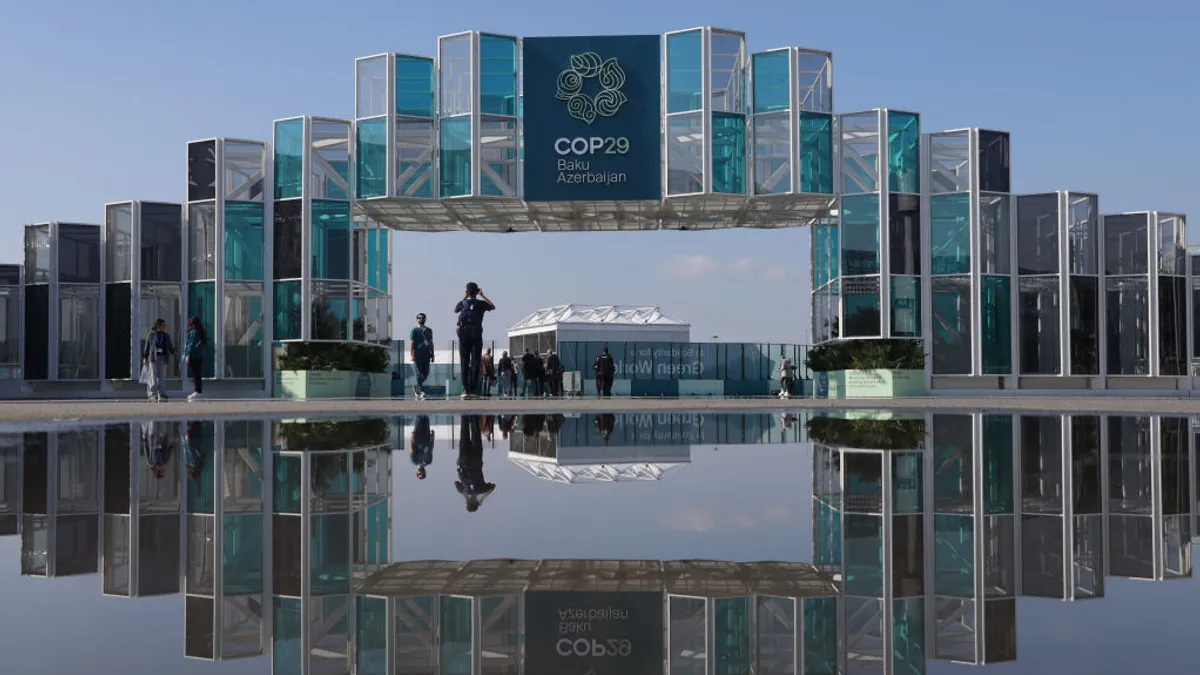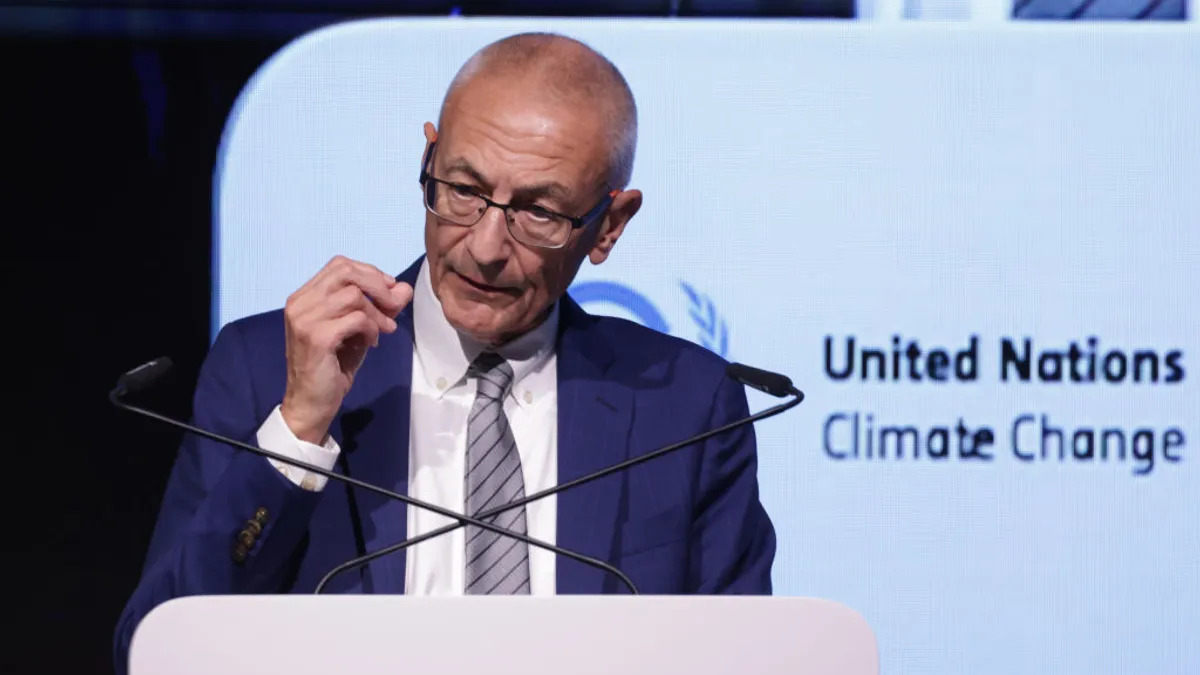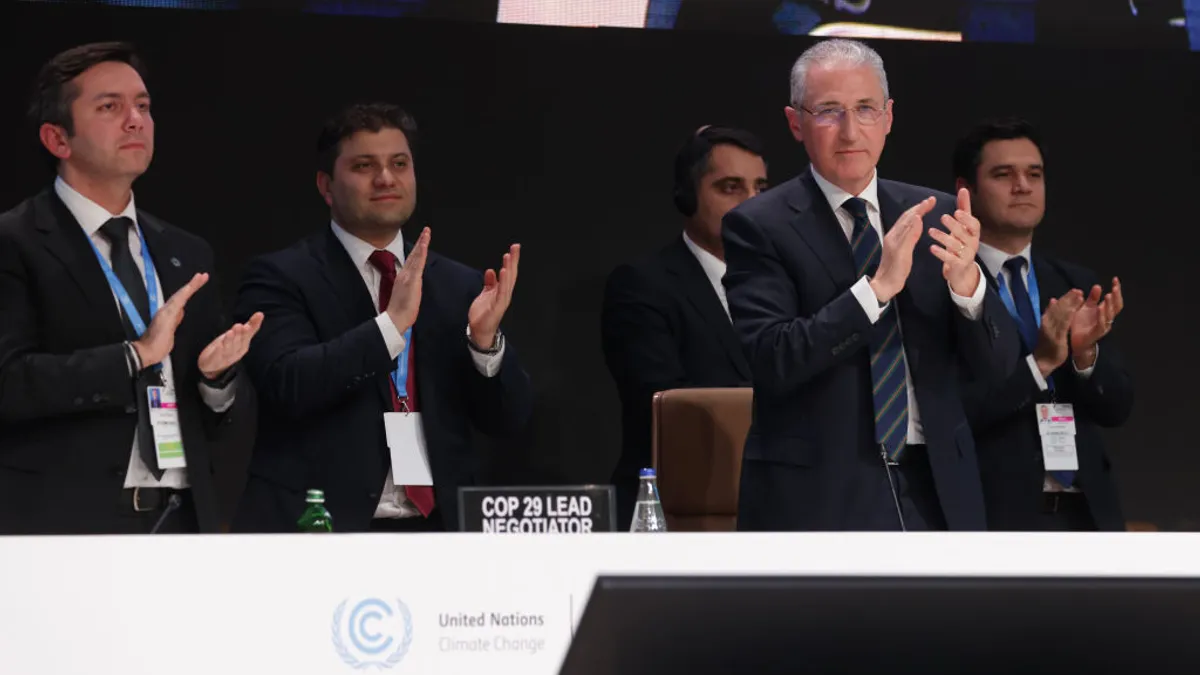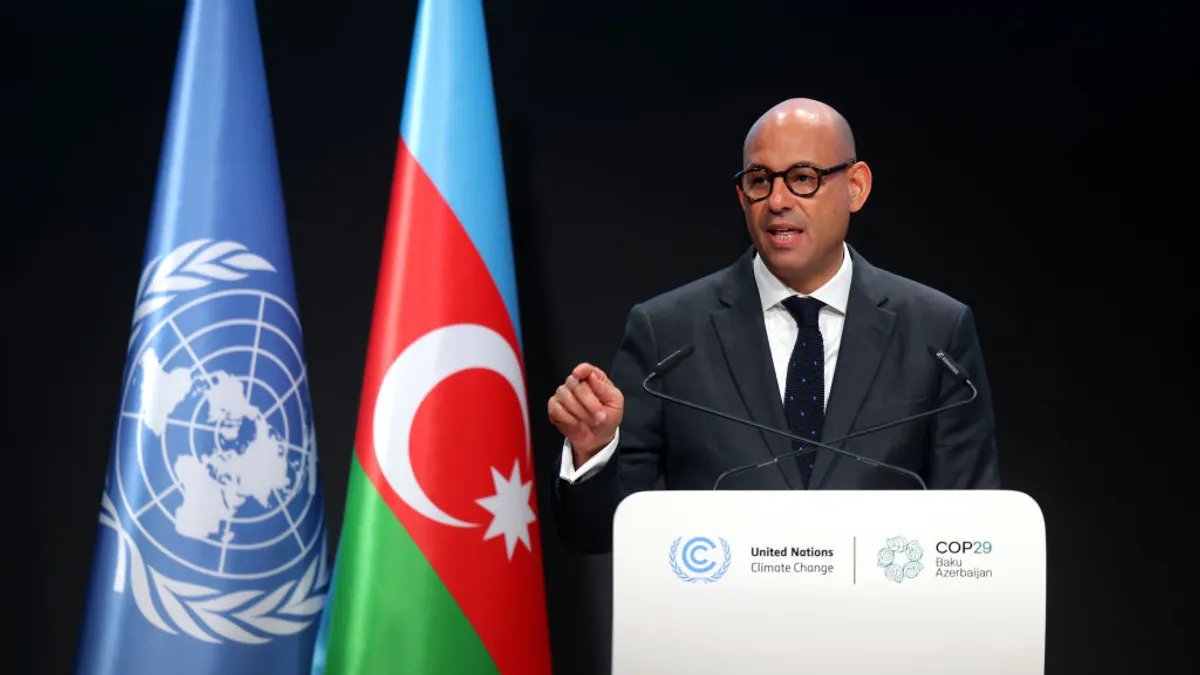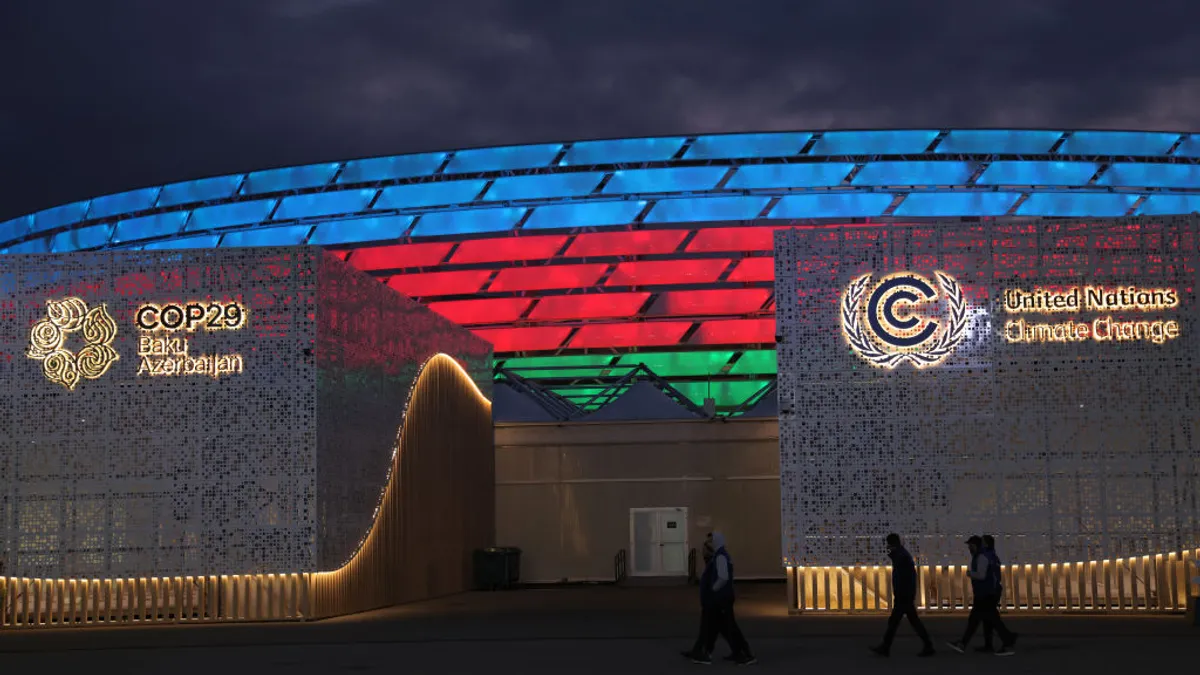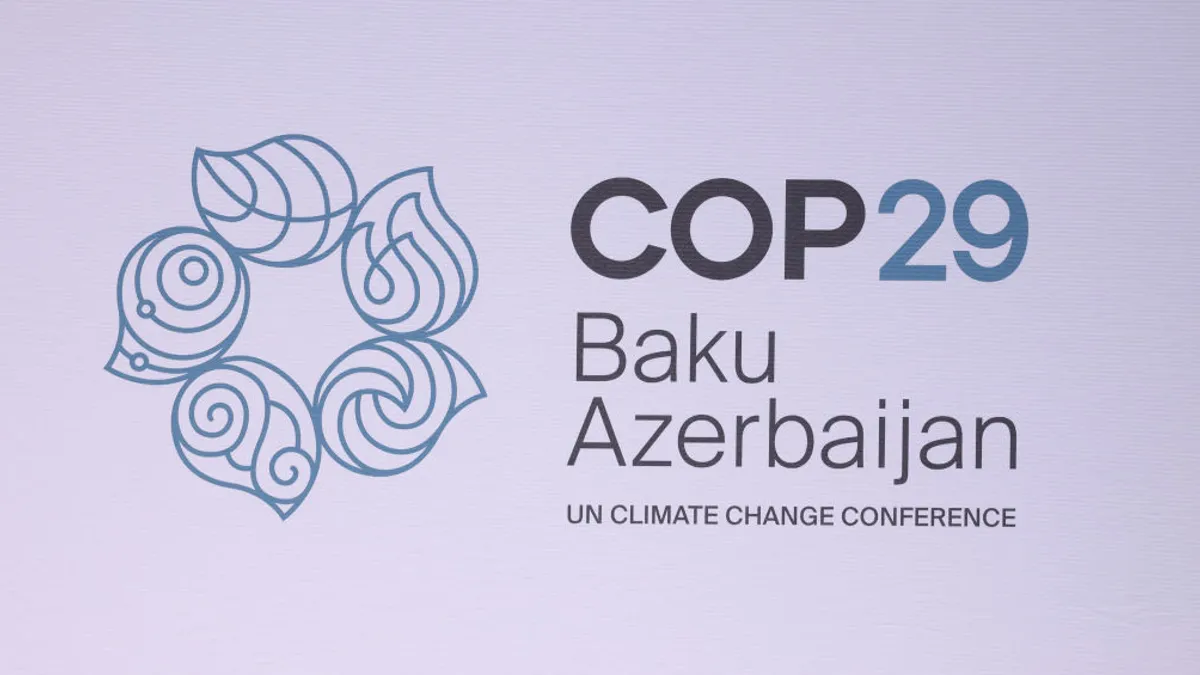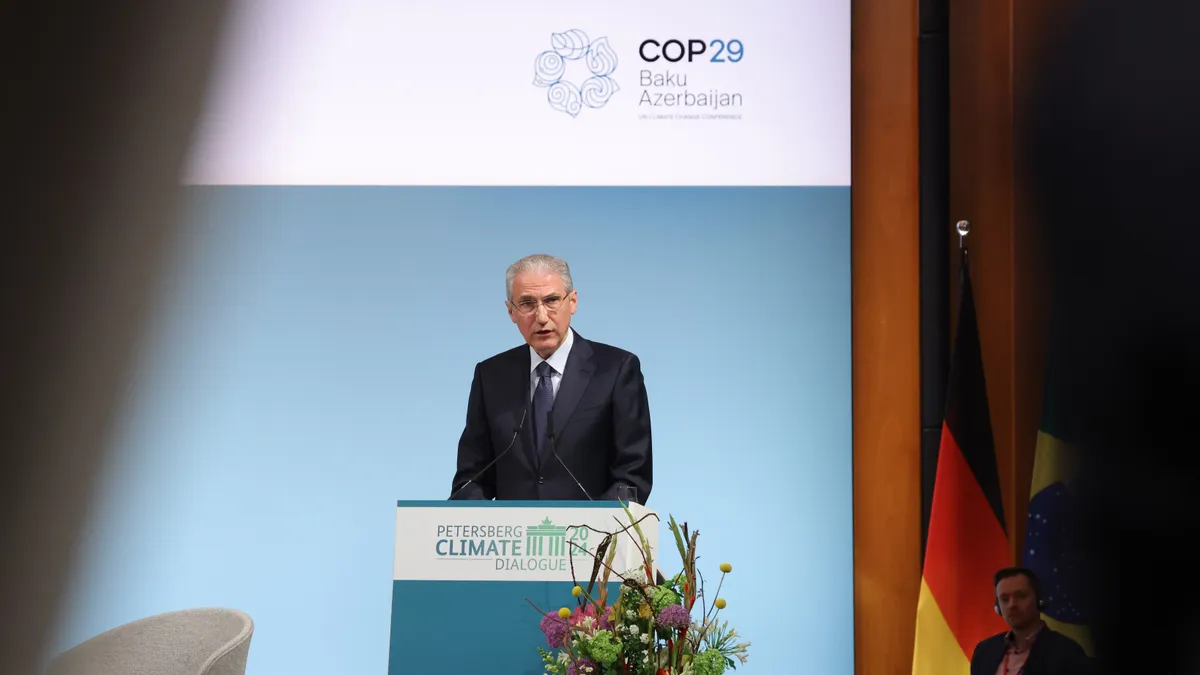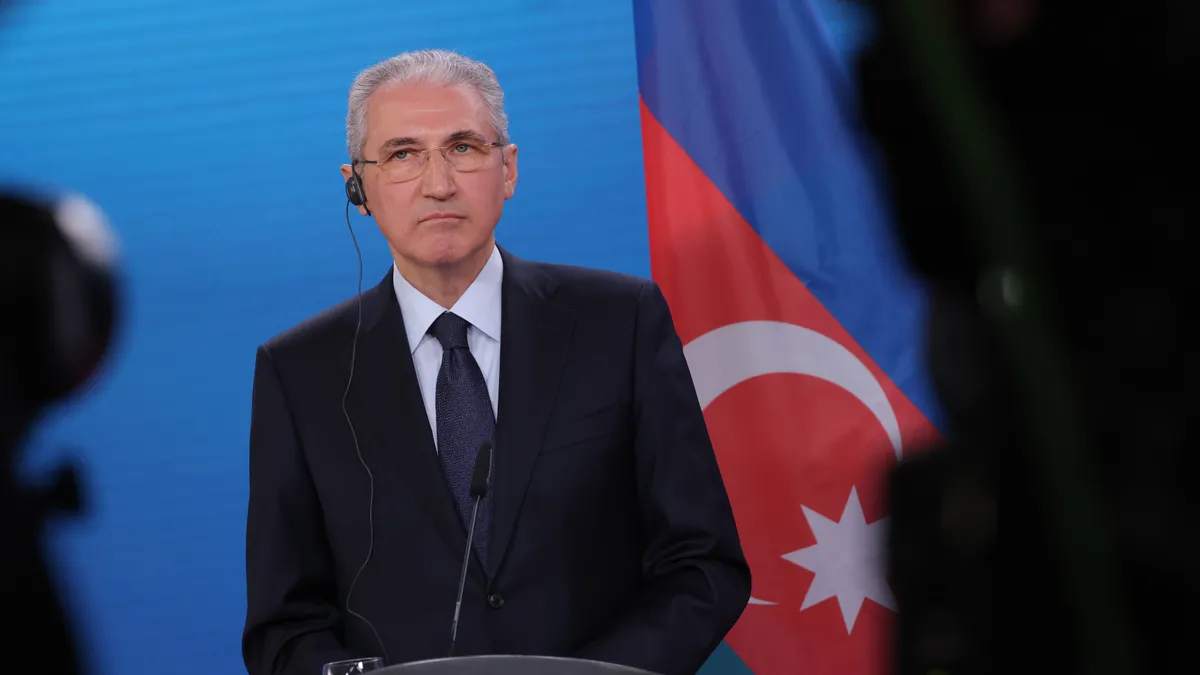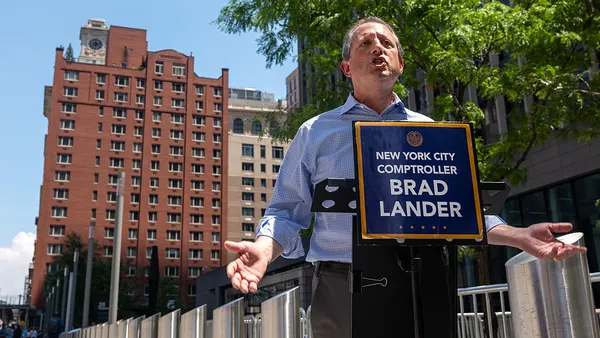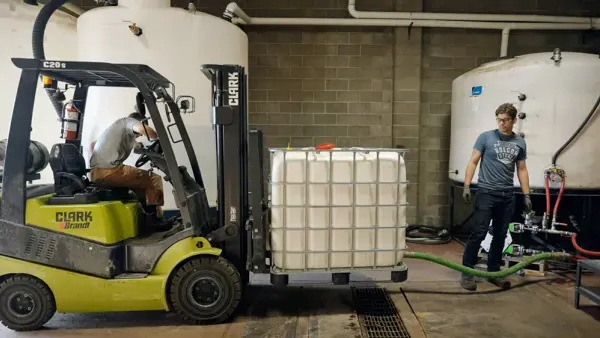Narmin Jarchalova is the chief operating officer for COP29 and chair of the COP29 Azerbaijan Operating Company. She previously served as a project manager for Azerbaijan’s pavilion at COP28.
As delegates descend on Baku, Azerbaijan to make meaningful progress toward global climate action and build climate resilience at the COP29 summit, we — the conference’s operations arm — have aimed to create an environment that promotes sustainability and inclusivity across all avenues of this global conference.
Every operational decision we have taken has been shaped by seven key principles: Carbon neutrality, accessibility, legacy and continuity, inclusivity, transparency and accountability, safety for all, and the promotion of sustainable practices.
These principles have been shaped by a thorough materiality assessment and extensive engagement with both internal and external stakeholders. The materiality assessment for COP29 involved consultations with a broad spectrum of stakeholders, including government bodies, businesses, civil society and international partners. The assessment highlighted specific areas of focus, namely reducing carbon emissions, enhancing accessibility, minimizing waste and fostering a legacy of sustainable infrastructure for Baku. We also benchmarked sustainability performance against best practices from previous COP summits and other international major events, with key learnings built into all layers of operational planning.
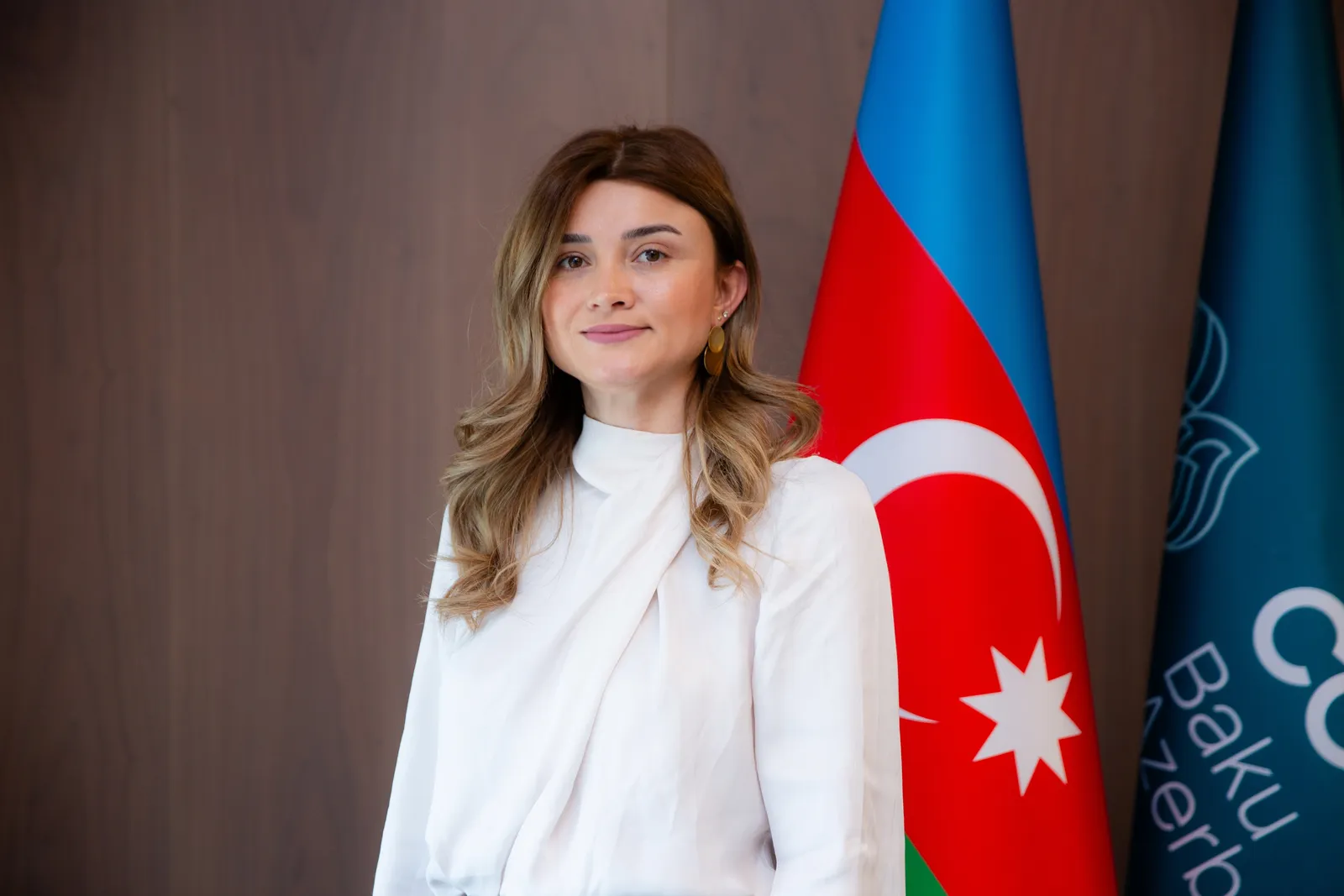
Drawing from this assessment’s findings, one area we focused on for COP29 was energy consumption: Prioritizing the sourcing of renewable energy for the conference and expanding transport options, including incorporating electric buses and micro-mobility lanes to reduce the overall carbon footprint of the conference.
Another key area of focus was vendor and value chain partner engagement, as strong collaboration between these two — including food suppliers — is crucial to delivering a sustainable conference. We emphasized the importance of waste management to all vendors and the need for them to have eco-certified materials.
Some steps the COP29 operations and planning division have taken to enhance sustainability at the venue include monitoring greenhouse gas emissions being generated by the conference using a bespoke calculation methodology; implementing measures to reduce the carbon footprint that is within our operational control; and using fully certified carbon credits to offset those emissions outside our control.
Other measures to reduce operational emissions within our control include meeting the majority of the venue’s energy needs by using Hydrotreated Vegetable Oil. This provides a cleaner alternative to conventional fuel, ensuring that key areas such as lighting, HVAC systems and equipment are powered sustainably.
To further reduce the conference’s carbon footprint, we are implementing a waste management strategy and targeting zero landfill waste, which is another crucial area of focus in our efforts to host a sustainable conference and utilize local facilities. Dedicated bins for food waste, recyclables and e-waste are strategically placed throughout the venue, with trained volunteers guiding attendees on proper disposal. By partnering with Clean City OJSC — an initiative from the “Tamiz Shahar" Open Joint Stock Company, which oversees waste disposal in Baku — we ensure that any non-recyclable waste is directed to a waste-to-energy facility, contributing to local energy production and further minimizing our environmental impact.
The COP29 operations team also introduced a suite of eco-friendly mobility options. This includes free access to Baku’s metro system and a new fleet of 160 electric buses, making it easier for delegates to travel and further minimizing emissions. Hybrid taxis and 17 kilometers of dedicated micro-mobility lanes for bicycles and scooters provide further sustainable mobility choices.
We want COP29 to be an accessible and welcoming environment for all, and one that provides delegates a seamless experience to work efficiently and productively toward their aim to enhance ambition and enable action in our collective fight against the climate crisis.
A big priority for us in supporting inclusive outcomes at COP29 has been adopting an inclusive approach to operations. We have embedded the United Nations Framework Convention on Climate Change code of conduct and general behavior principles across all aspects of the organization to ensure all participants engage in a respectful, healthy and safe environment.
Accessibility is a core part of our overall approach to inclusivity this year and it is fundamental to creating a welcoming environment for all delegates. All considerations have been made for different facilities participants may need across the venue, including all-gender restrooms, prayer rooms, nursing rooms and quiet rooms.
We have drawn on learnings from previous COP summits to design this conference’s accessible offerings, which include enhancing the number of lanes and access for wheelchair users in the public screening areas and introducing several measures to ensure attendees with mobility challenges have access to support during the conference. For those with visual impairments, we will offer sign language interpretation during the conference — a first for a COP summit.
The COP29 operations team at Baku is committed to creating an atmosphere that enables ambitious and meaningful talks and negotiations. We hope to set a standard for future conferences and foster a long-term legacy for Baku where every effort counts, and every voice is heard.

